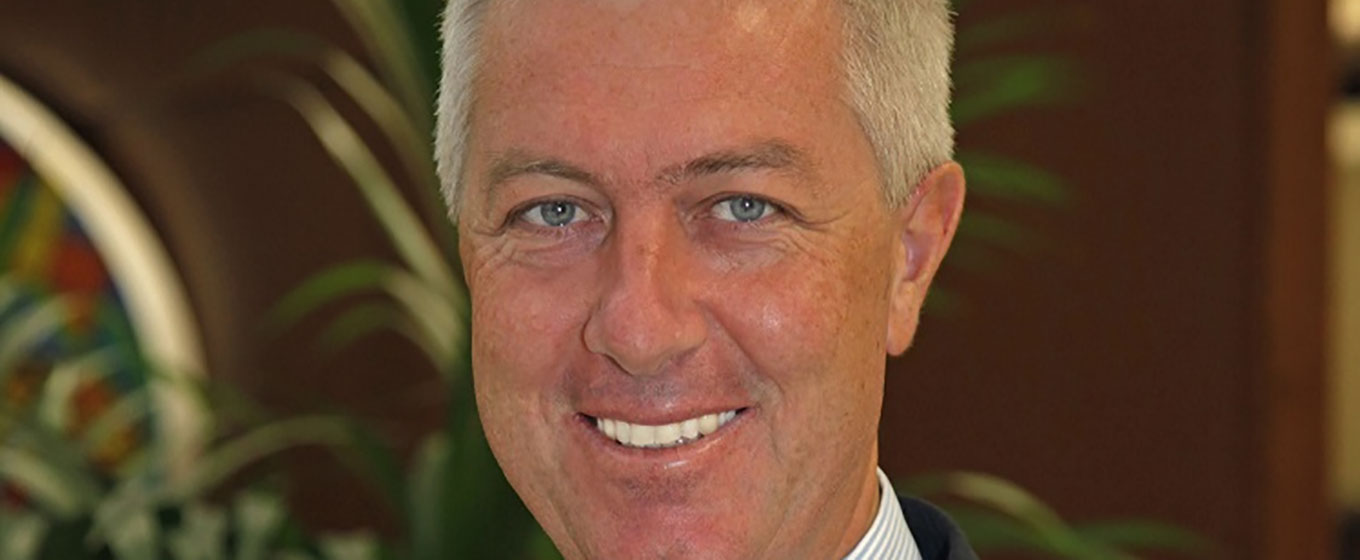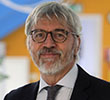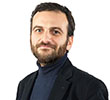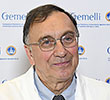We Won’t Let it Tear Us Apart - Dr. Paolo Nusiner

The COVID-19 pandemic has obliged everyone to change the way things were usually done until March 2020. Adapting is never as easy as it seems, especially when the future is uncertain and actions have to be taken so rapidly. Speaking of universities and higher education, what’s missing and what students miss the most is the sense of community that one could find there – but we are working to get it back as soon as possible.
The reorganisation of the university and teaching activities was unexpected but necessary. Since the situation was unprecedented and there were no previous action plans to start from, what were the guiding principles for the process of adaptation?
Nobody was ready to tackle a situation such as this but it was absolutely essential for us to act quickly, particularly at the beginning. I think that the principles we worked from were that we should react soundly to the situation, be imaginative in seeking solutions and be on top of setting up and operating the new teaching model. We had to base our actions primarily on the regulations as they were gradually issued by the government and health authorities. We kept to these regulations and within ten days we managed to transform all teaching from traditional approaches in lecture rooms to a completely remote system. Taking into account the complex structure of the university - 12 faculties, 100 degree courses and 40,000 students – this transformation entailed a great effort with regard to organisation, ideas and planning. I must say, though, that our organisation reacted in double quick time and displayed an immense ability to adapt to change.
The Università Cattolica community - made up of students, professors/instructors and technical/administrative staff - is living through an extraordinary, unprecedented historical period. One of the founding values of our university is based on the importance of relations between all those who are part of the university. How can we transform this emergency into an opportunity for growth for our community?
This new adaptation does not call into question the idea of universities that we have, that of the relationship between the individuals that make up the university. What is essential for us it that we look to the future and bring the students back to campus through values linked to the relationship between students and professors/instructors. University is where important relationships are established, which may also be a result of taking part in the educational and cultural activities offered by the campus. For several weeks we have been planning activities for the next academic year, which as far as possible will involve a return to campus, but this will depend on many factors – on how the requirement for health and safety measures will evolve in the next weeks and months. We will resume on-campus activities while ensuring throughout the academic year that all academic activity will also be delivered remotely. We are equipping all lecture rooms with an advanced video recording system which will film professors/instructors as they teach and allow some students to be in the lecture room, while those not present can follow classes as they are live-streamed. Recorded classes will be accessible on the support platform to be viewed at any time.
What measures have been taken to ensure health and safety at the university?
First of all, I have to say that health and safety is something that we have always paid great attention to right from the beginning, and we will continue to do so. In particular, the General Safety Council - a Università Cattolica body already in existence before the health emergency - has been assigned the task of drafting and updating the protocol for university health and safety with regard to circumstances brought about by the Coronavirus. We have widened this Council to include student and employee representatives and a protocol has been issued which lays down rules to be followed by anyone accessing the university premises. The second version of this protocol is now ready. There is a process of continuous review: the rules are not set in stone since the situation can change quickly and we cannot exclude that further restrictions may have to be put in place. We are always prepared to intervene. This committee also bases its work on the advice provided by two professors who are supporting us on points dealing specifically with health and safety - Prof. Cauda and Prof. Sanguinetti.
During the lockdown, the acute phase of the coronavirus emergency, what was the moment of greatest difficulty and how did the university's senior management deal with the obstacles they found themselves having to deal with?
Right at the beginning, when there was so much uncertainty about the real extent of the situation we were experiencing, as was the case for the public authorities as they issued guidelines, we were all asking ourselves what we were having to deal with. Situations of uncertainty are the most difficult to read. The decision we made was to use criteria based on maximum precautions to protect the health of both employees and students. The situation is now an orderly emergency: we are working at 100% because the university's activity is functioning at 100%, even though this is happening remotely, and the response from all parts of the university has been exceptional. To date we have ensured delivery of 37,500 hours of online lessons, starting from no hours at all. We have held course exams, vivas ...university activities have all been delivered over these months, and just think that during the critical moments of the pandemic in Milan there were only twelve people physically on campus. We have shown great ability to adapt and I believe this might be important to pass on to our students.
Università Cattolica is looking to the future and is preparing for the next academic year at full capacity from all points of view - academic, administrative, health and safety etc.. What do you promise students, in particular those who will be just beginning their studies with us?
In addition to protecting the safety and health of students, which remains the priority, and guaranteeing continuity of teaching, which we have already mentioned, our promise is also to keep the quality and style of our university's educational offer intact: nothing will change negatively. We have seen this work (it is one of our strengths), and we will certainly be able to maintain these levels of quality even as the emergency continues.
How would you describe Università Cattolica to an international student? What sets the university apart?
The style of Cattolica that I like to talk about is that of being a community - so the sharing of the university experience, including the experience of our masters and specializing programmes. Università Cattolica has always seen this relationship as a central driving force. The university community is a wonderful concept which involves everyone and is not limited just to teaching. It means taking part in an all-round experience regarding our students living their time of education. Cultural activities, the third mission and so on are all part of our overall offer and this certainly sets our university apart from others.





